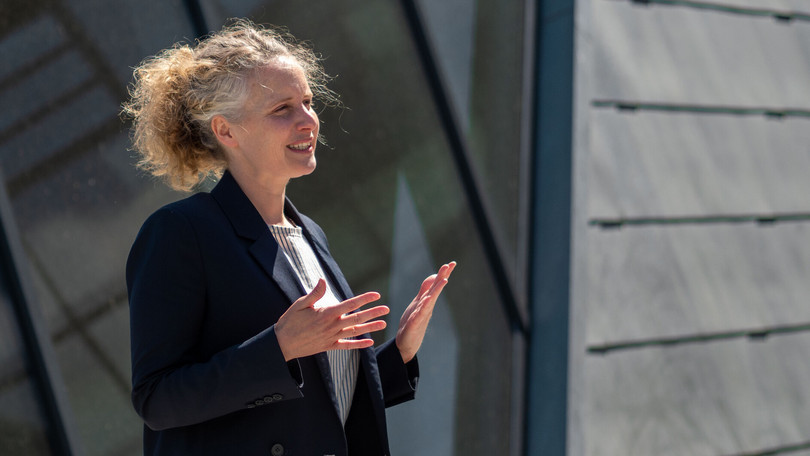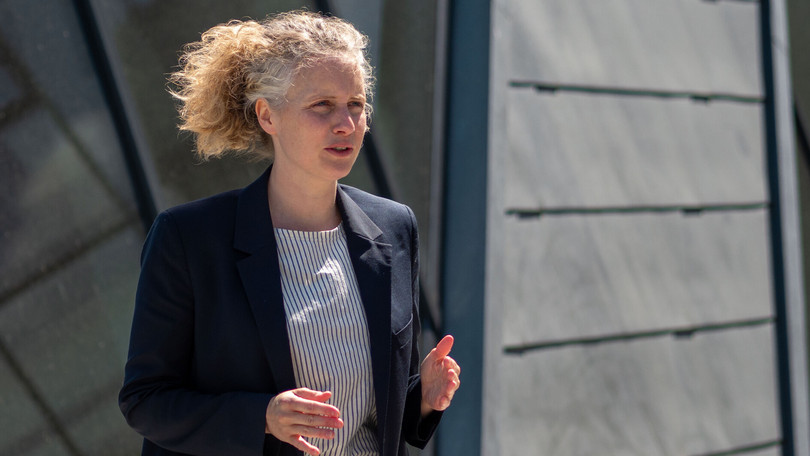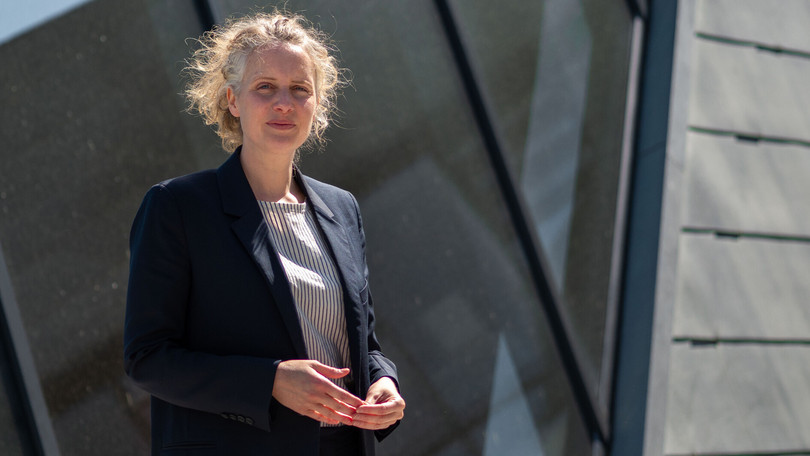New at Leuphana: Prof. Dr. Johanna Croon-Gestefeld
EU law in the midst of social change
2023-05-30 Studies and doctorate at the European University Institute in Florence, research stays at the European Court of Justice and Yale Law School: Johanna Croon-Gestefeld is an expert in the field of transnational law. Since April, she has been Professor of Civil Law, in particular Transnational Private Law, at Leuphana Law School. She looks at civil law in the context of social developments.
"The professorship at Leuphana exactly reflects my interests," thinks Johanna Croon-Gestefeld, "here I can devote myself to private law in the multi-level system." That is, at the federal level, Europe-wide and internationally. The 37-year-old made a conscious decision to take the position; she turned down a call to the University of Bremen in favor of Leuphana. In her research, the legal scholar would like to focus on transnational family law and sustainable private law in the future. How can the protection of adults in need of care be ensured in cases with cross-border implications, or how can same-sex parenthood be recognized within the European Union? And how do discussions around the climate crisis change the law, for example when it comes to the EU's "Green Deal" or climate liability claims against large corporations? "My approach to such questions is not an ideological one," Croon-Gestefeld emphasizes, "but rather I am interested in how law is changing and what questions arise for law from social developments." Leuphana is the right place for such questions, she says: "There is honest curiosity here and an open mind for social issues," Croon-Gestefeld says.
Her professional path began for the native of Upper Bavaria with her law studies at Hamburg's Bucerius Law School. After her first state examination, the then 23-year-old decided to venture abroad: to the European University Institute in Florence. The research institution, which is independent of any state, is supported by the EU member states. Its aim is to provide students with an international, socially oriented course of study with the goal of contributing to the development of Europe. Among the graduates are well-known actors from science, politics and law, such as Giuliano Amato, Italy's former prime minister, or Miguel Poiares Maduro. The former Advocate General at the European Court of Justice also supervised Johanna Croon-Gestefeld's doctorate.
The legal scholar completed her Master of Laws in comparative law, European law and international law in Florence and subsequently earned her doctorate. In her doctorate, she analyzed the European principle of equality: what does the right to equal treatment of all European Union citizens mean in practice? After all, each Member State still has special rights for its citizens. How is EU law applied and which institution is responsible when? "That's also what's exciting about transnational law," Croon-Gestefeld finds, "to see which institutions deal with certain issues, how rulings are received by different actors, and how that affects the legitimacy of the law."
During her doctoral studies, the legal scholar undertook research stays at the European Court of Justice in Luxembourg and at Yale Law School. While still writing her doctoral dissertation, Croon-Gestefeld began her legal clerkship at the Hamburg Higher Regional Court. During this time, she was trained by, among others, Till Steffen, now a member of the Bundestag, and completed a stint at the German Federal Ministry of Economics. At the beginning of 2015, she passed her second state examination and then worked as a research assistant at the Chair of Civil Law, European and International Private Law at Bucerius Law School under Professor Dr. Anne Röthel.
At the same time, she began her habilitation thesis on common interests in private law. As a rule, private law is not the place to negotiate public interests, for example environmental concerns. Environmental protection is usually regulated by public law and criminal law. Johanna Croon-Gestefeld challenges this understanding: "The idea that private law is exclusively about free, equal individuals interacting is too simplistic." Consumer law, which is part of private law, offers a current example: the right to repair, currently hotly debated at the European and national levels. The goal: to extend the life of products, a step away from a throwaway society and toward a circular economy. In the case of the right to repair, a provision from private law would benefit the community interest for more environmental protection.



